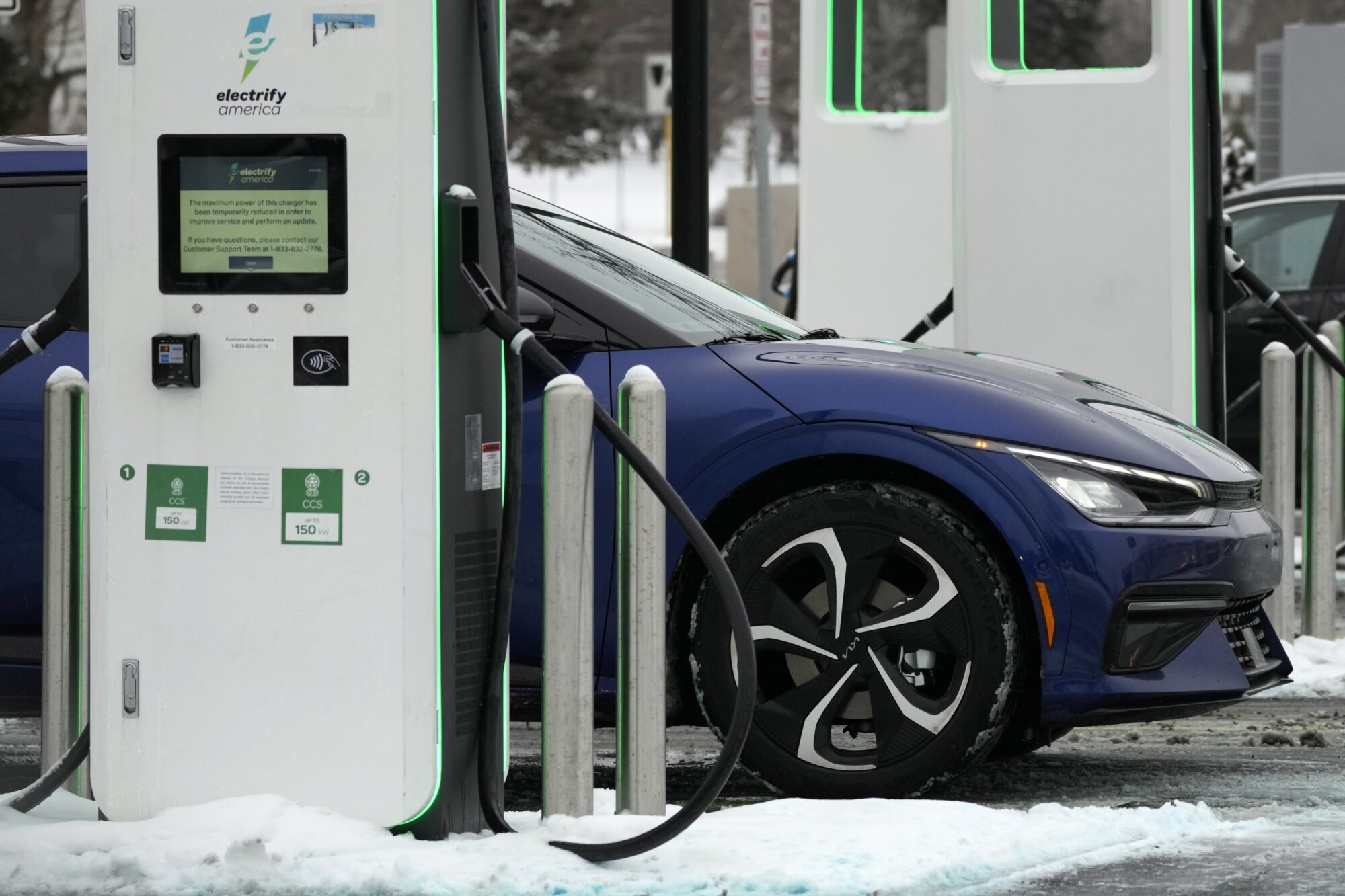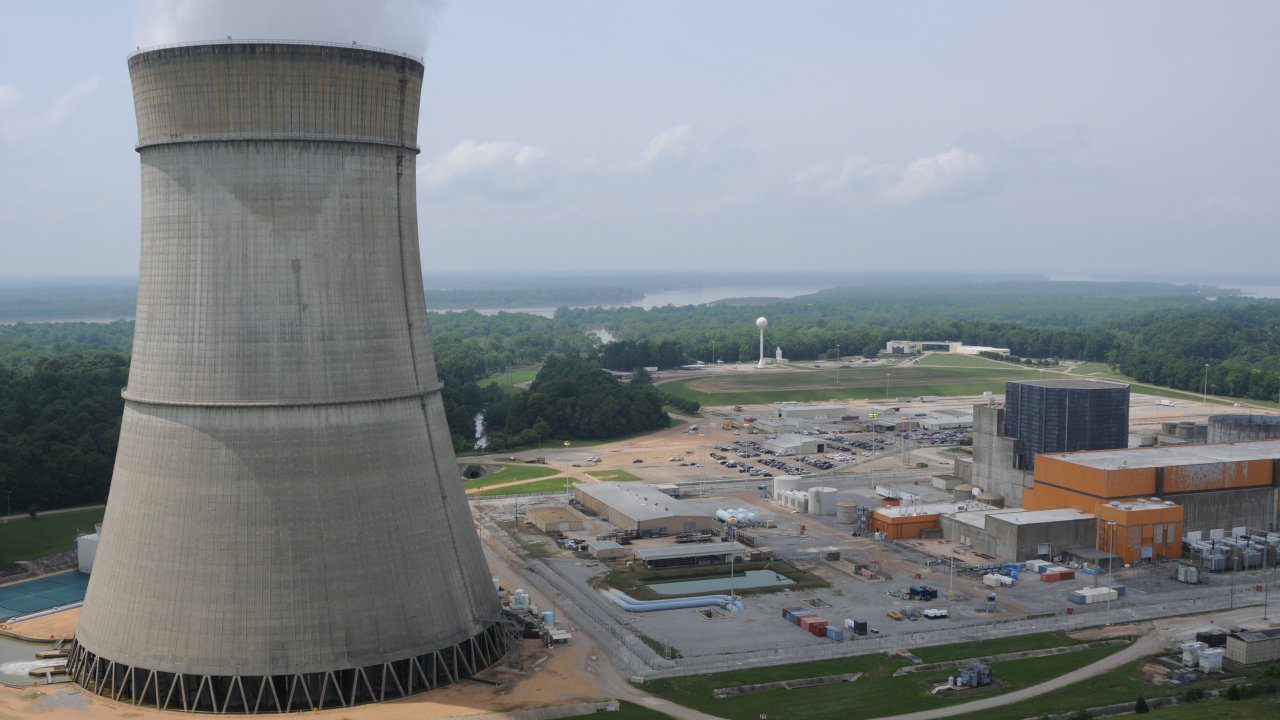
FILE - A Electrify America Charging Station for electric vehicles is seen at Westfield Old Orchard shopping center in Skokie, Ill., Jan. 29, 2023. The Biden administration will propose new automobile pollution limits this week that would require at least 54% of new vehicles sold in the U.S. to be electric by 2030, ramping up quickly to as high as 67% by 2032. That's according to three people briefed on the plan. (AP Photo/Nam Y. Huh, File)
If you’re enjoying high inflation, you’ll love what the newest Biden Administration energy proposals will do. On many fronts, they continue to set new records in pushing policies that dwindle precious U.S. energy security and increase consumer costs.
In April alone, the Environmental Protection Agency (EPA) both proposed unprecedented rules that mandate the manufacturing of electric vehicles and announced new regulations that will require expensive emissions capture on power plants. If finalized, these rules will hit anyone who drives cars, uses electricity or buys anything with higher costs.
To be clear, electric vehicles and carbon capture equipment are evolving and good things, offering new options for car-buyers and new technology for emissions reductions, respectively.
However, regulatorily mandating these into the market at high costs in the absence of consumer demand is a very bad thing. When politicians and bureaucrats move to take away consumer choice and force products into the marketplace, adverse consequences are bound to follow.
If finalized, these rules will likely be thrown out by the Supreme Court because they are very likely illegal in their overreach, but by the time that happens, the damage could already be done. We’ve seen this play before in the Obama era war against coal.
In 2012, the EPA issued a strict air regulation requiring coal power plants to quickly install new emissions controls. Due to the excessive costs, states and industry challenged the rule. The Supreme Court struck the rule down in 2015, saying the EPA failed to weigh the unreasonable costs versus marginal emissions reduction benefits. By that time, many coal plants had either already added the expensive controls at their customers’ expense or finalized plans to close plants due to the onslaught of anti-coal regulation.
Biden’s EPA is now using the same tactics to transform vehicle manufacturing and electricity generation into something based not on consumer demand or what’s best for energy cost or reliability. Instead, they’re doing what they can to drive more of their preferred products into the market to replace energy sources they detest, presumably for political reasons.
In their utopian world, the Biden Administration and other anti-oil and natural gas activists in
Washington, D.C. want all electricity coming from wind and solar with everyone driving fully electric vehicles. No matter the intermittency problems or the vast land needed for the panels and wind turbines, they say it will be a great new world. Technology we don’t even know about yet will solve all these problems in just a few years. Just have faith.
Electric vehicles and carbon capture already come with huge tax credits, but that’s not enough, so aggressive regulation will help eliminate the competition. That’s their plan – with gasoline cars, natural gas power plants, gas stoves, and the list will go on.
Cars, appliances, and power plants are fundamental to our quality of life in the U.S. We all choose products that best fit our lifestyles. As the regulatory costs go up and options get squeezed out, costs will only go up higher.
Mississippi and many other states have rejected the economically catastrophic energy policies that places like California, New York, and Europe have succumbed to after being overtaken by environmental activism. The results of their policies are energy outages and far higher energy costs, harm to families and businesses, outmigration, and ironically, no environmental benefit to speak of.
These rules would be terribly transformational and are aimed at forcing all the U.S. into California and New York type energy restrictions. This is certainly not what we want, but Biden’s EPA knows what’s best for you. At least, that’s what they think.









